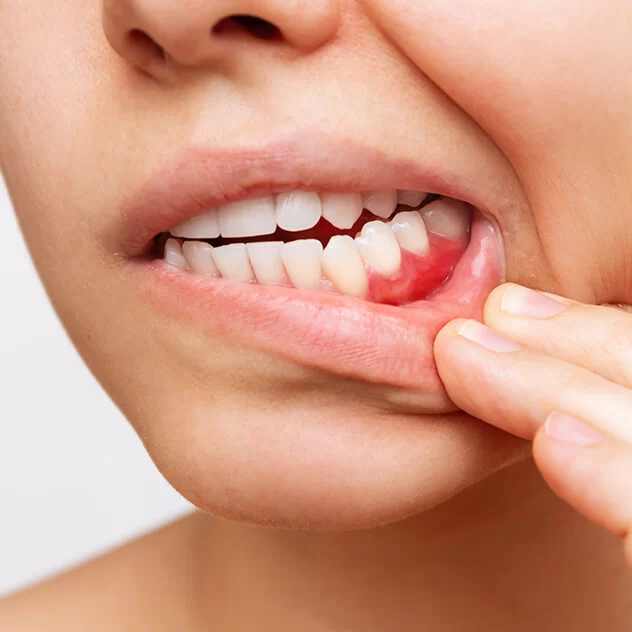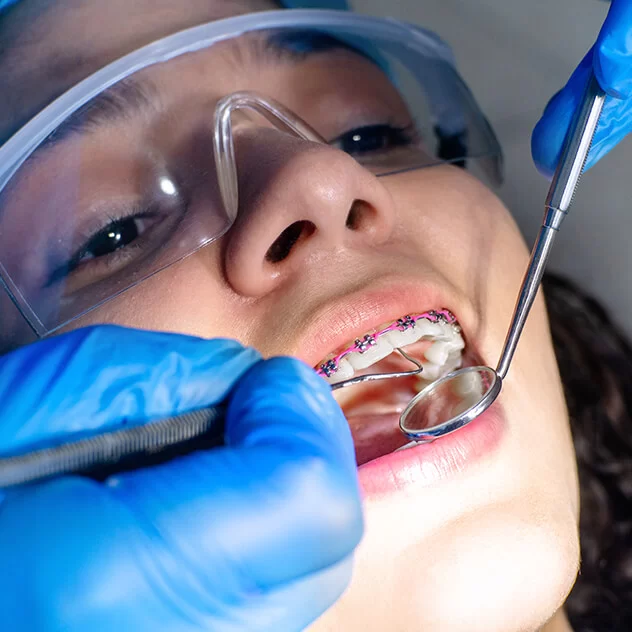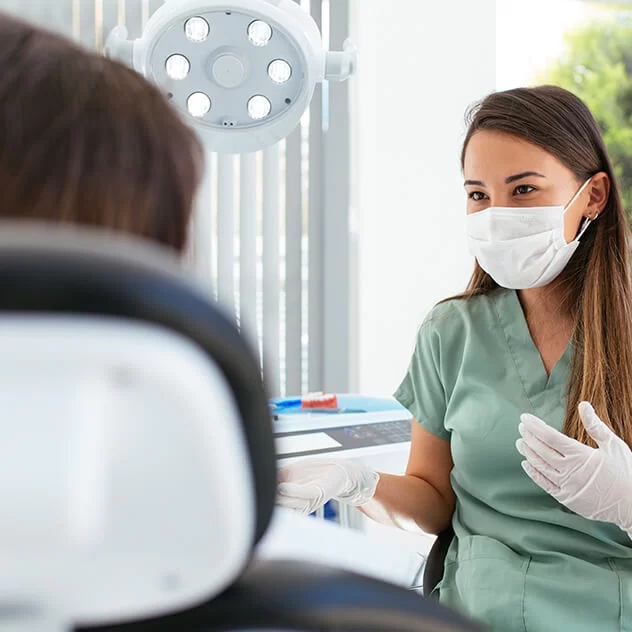
What is gum disease?
Gum disease, or periodontal disease, destroys the ligaments and bones that hold your teeth in the jaw. It can start as early as your teenage years and is something you may not know you have unless your dentist carefully examines you.
Some common symptoms of gum disease include bleeding gums, gum recession, the development of a space between your teeth and gums, loose teeth, and regular swelling.
How do you treat gum disease?
Periodontitis cannot be cured but can be held at bay and prevented from advancing further. Once gum disease has presented itself, we recommend that patients establish careful and regular oral hygiene routines.
Specialist treatments for advanced gum disease may include deep cleanings, periodontal check-ups, gum surgery, and bone grafting.
World-class care
The clinicians and staff at Royston Dental Care are committed to using the latest advancements in dentistry in order to bring you the best preventative care for gum disease.

Book a consultation
Do you need a periodontal consultation?
You may require a periodontal assessment if you have sensitivity, bleeding, or swelling in your gums. Our experienced clinicians will conduct a thorough consultation and offer a customised treatment plan based on your needs.

FAQs about gum disease
Historically, plaque accumulation due to poor oral hygiene was believed to be the leading cause of gum disease. However, research shows that 10% of people resist getting periodontitis even if their oral hygiene is poor. 10% are highly susceptible and will develop gum disease despite good oral hygiene. Most other people will often develop gum disease later in life.
Susceptible patients develop gum disease because their immune system overreacts to the presence of plaque at the gum margin and between the teeth. These patients are also at risk of early tooth loss as well.
Studies have revealed some factors that may contribute to an increased chance of gum disease. These include but are not limited to poor genetics, stress, smoking, drugs, diabetes, and pregnancy.
No. Once gum disease has presented itself, you can only treat the symptoms with Specialist procedures and regular professional cleanings. You can also implement meticulous oral hygiene practices to discourage plaque buildup.
Other Treatments

Bespoke Orthodontics
Customised solutions designed for you
We take a custom approach to every treatment plan, offering only the best orthodontic treatments to help you get a straighter smile.

Cosmetic Dentistry
Aesthetic enhancements for your best smile
Our cosmetic dental solutions help our patients achieve their desired aesthetics via cutting-edge solutions.






